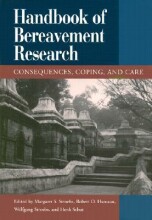Risk Factors in Bereavement Outcome: A Methodological and Empirical Review
7 important questions on Risk Factors in Bereavement Outcome: A Methodological and Empirical Review
Why is study of risk factors important?
study of risk factors plays an important role in developing and testing theoretical explanations of the health impact of bereavement
Bereavement specific risk factors
example: circumstances surrounding a loss (more severe health consequences occur following a sudden rather than expected loss)
Cross sectional designs
matched or control design for bereavement specific factors (non bereaved controls not necessary: correlated with other variables that have health effect, matched on variable or control statistically for variable)
- Higher grades + faster learning
- Never study anything twice
- 100% sure, 100% understanding
Two mechanisms in which religion can influence bereavement outcome:
2. religious participation may be associated with integration into a social network or community
Gender and bereavement outcomes:
gender pattern for mortality rates most consistent (males higher than females)
Reasons for gender differences:
bereavement coping and strategies more effectively used by women
confrontation of loss (including grief work) is essential for healthy recovery, however men do not have to because they can fully immerse in work
Dual-process model of bereavement
directly associated with loss of loved person
secondary consequences of loss (loss of income, move)
The question on the page originate from the summary of the following study material:
- A unique study and practice tool
- Never study anything twice again
- Get the grades you hope for
- 100% sure, 100% understanding































